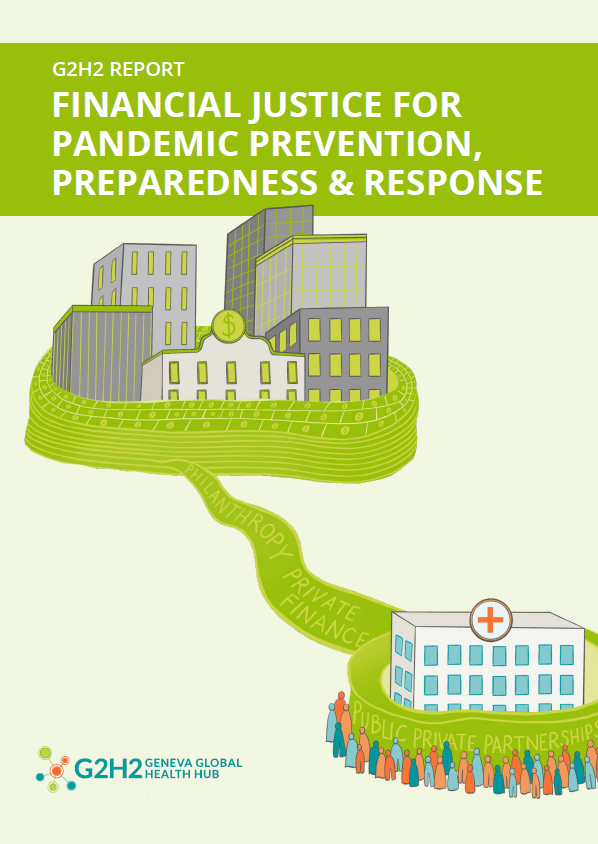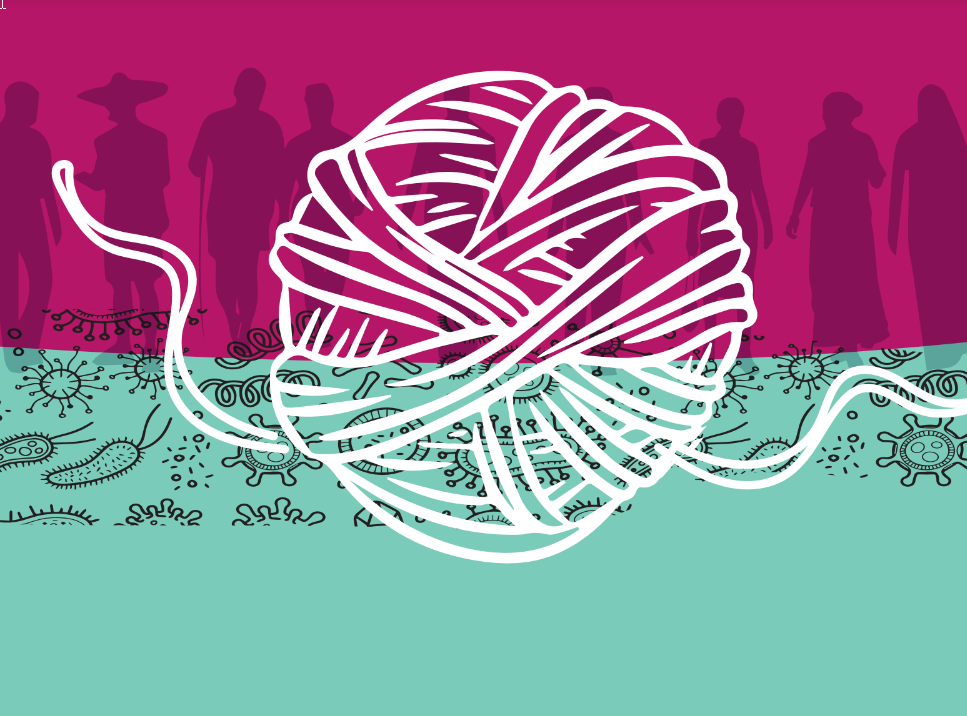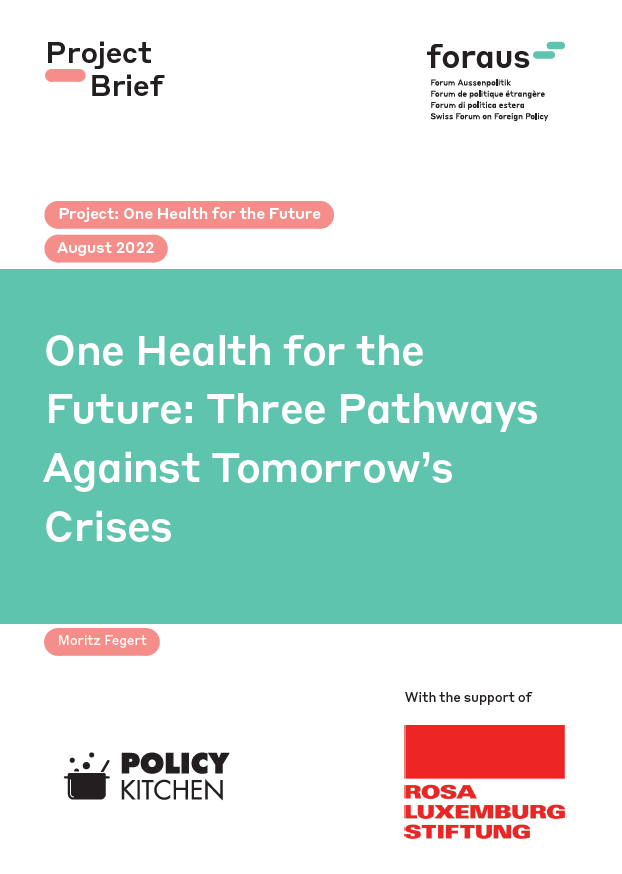Share Twitter Facebook Email Copy URL
This article is part of our series dedicated to the 75th anniversary of the Universal Declaration of Human Rights.
The international public health community gathered in Geneva from 21 to 30 May for the 76th World Health Assembly of the World Health Organization (WHO). This year, this event has a highly symbolic value. Seventy-five years ago the WHO became operational, as the first technical agency of the United Nations. The right to health was the first right to become binding international law – a little-known fact – which represented the expression of an unambiguous vision in the post-war years. The political class that survived the catastrophe of two world conflicts, the madness of two genocides (against the Armenians and the Jews), the ferocity of two nuclear devices dropped within the space of a few days on Hiroshima and Nagasaki, did not hesitate to put into effect a significantly utopian aspiration, in order to recover from the wreckage. Co-operation was better than fighting each other. Achieving the highest possible standard of health for all of humanity was the winning strategy to make the world a safer place. The establishment of the WHO, whose preamble stands out as one of the highest conceptual elaborations in international politics, links health and peace, as the basic requirements for the sustainability and dignity of every person on the planet. S what is left, today, of that vision?
Certainly, the long history of the WHO has been characterised by both up- and downturns, but we cannot dismiss its many achievements. In seven decades, life expectancy around the world has increased from 46 to 73 years, with the global south having experienced the most significant advances. The campaign against smallpox, which began in 1959, led to its eradication in 1980: smallpox remains the only disease in history eradicated so far. We are also close to eradicating polio and Guinea worm. Malaria has disappeared in 42 countries and at least in 47, one infectious disease has been eradicated. Before the planetary disruption caused by Covid, tuberculosis and HIV were under control. Maternal mortality at birth has plummeted by a third in the last 20 years, by 50% that of children – although a recent who report warned of the dangerous stagnation of maternal and child health since 2015, highlighting the fragility of any progress even in the era of sustainability. The WHO was able to express itself best when it used its regulatory power to address the issue of smoking, exposing the tobacco lobby, which used to deny any connection to cancer. The adoption in 2005 of the Framework Convention on Tobacco Control marks a memorable page in the annals of the WHO, stressing the historic reluctance of governments to use its enormous potential in other areas too.
In 1978, the first international public health conference in Alma Ata promoted by Director General Halfdan Mahler, against a global backdrop marked by the Cold War, projected a policy inspired by fundamental social rights and the demands for a new international economic order, with the historic horizon of health for all by the year 2000. A milestone for public health, which has reshaped the world’s health culture. Mahler called the Declaration at Alma Ata “a sacred moment” and “a sublime consensus” on the part of the international community. Its relevance is still intact.
Nonetheless, in 1981, a few years after Alma Ata, a new disease, previously completely unknown, began affecting the gay community, then spreading rapidly to people of all ages. It took two years to find out that its origin was the HIV virus. Meanwhile, another ‘virus’ was beginning to establish itself. Much more difficult to address, this was the ideology of economy elevated to an absolute principle, imposing the universalisation of the American development model, combined with savage forms of deregulation and financialisation, throughout the world. The impact of economic reductionism has transfigured health policies, widening and stratifying health inequalities everywhere.
While access to essential health services has clearly increased since 2000, it is equally evident that the adoption of vertical programmes focused on individual diseases, based on the Western biomedical approach (the opposite of Mahler’s vision) has counteracted the drive of many countries, also in the south of the world, towards policies related to health determinants. The neoliberal health agenda has strongly pushed a humanitarian-medicalised health approach, with the precise intention of opening the doors to the private economy. As a result of this strategy, intervention has become project-based, disrupting the health systems of developing countries, making them subservient to the priorities of donors. Today, 50% of the world’s population does not have access to one or more basic health services, nor to healthcare personnel. Since 2000, two billion people have been forced to pay for essential healthcare services out of their own pockets, with unspeakable sacrifices: a one-third increase over twenty years (WHO, 2023).
Meanwhile, the needs of the global population are increasing, as a result of the intoxicating effects of the model of development imposed by globalisation on the soil, air and water, on the very way people live. There is a growing population that lives in a state of almost permanent exception, discriminated against and marginalised as if they were not human. The mass of peoples on the move is growing, seeking a path to salvation or simply a decent life, forced to face harsh security policies that negatively affect the physical and mental health of both those who are impacted by them, as well as those who enforce them.
The right to health is not in good health at all. Nor is the WHO, scarred in its constitutional mandate by the sprawling influence of private interests. It would, however, very much be a mistake to consider it useless, or doomed. The WHO is the sum of the will of its states, and the world would be much worse off without it. Therefore, let’s start with us: what is Italy actually doing to truly support this organisation?
Nicoletta Dentico is a journalist and a senior policy analyst in global health and development. After directing Médecins Sans Frontières (MSF) in Italy, she played an active role in the MSF campaign on Access to Essential Medicines. She worked as consultant of the World Health Organization and she currently leads the global health programme for the Society for International Development (SID).
This article is part of our series dedicated to the 75th anniversary of the Universal Declaration of Human Rights.



